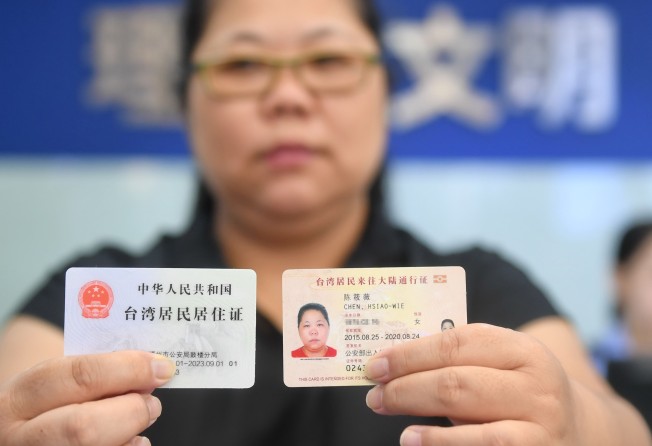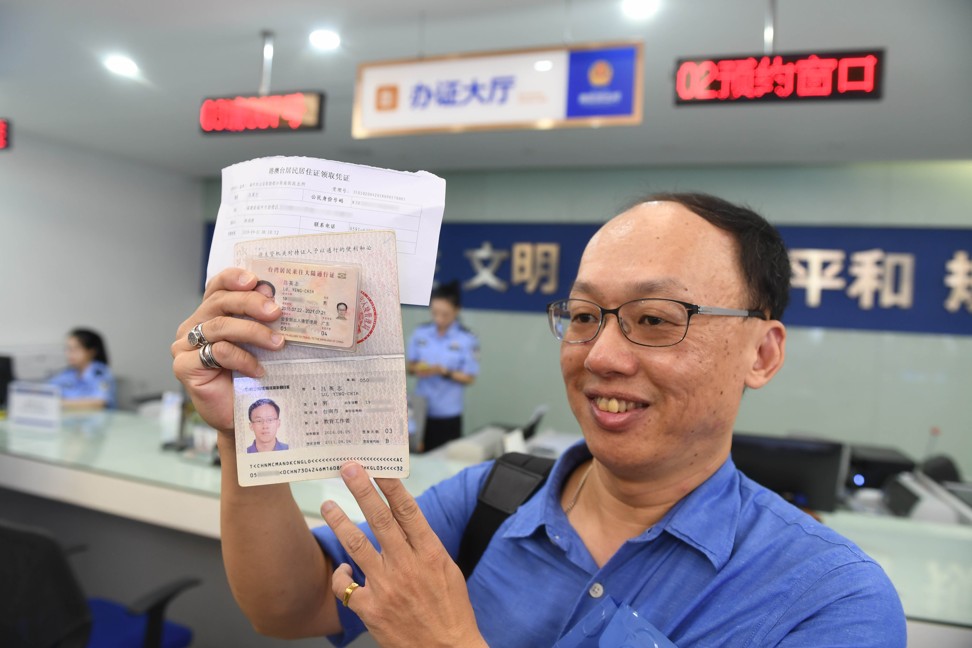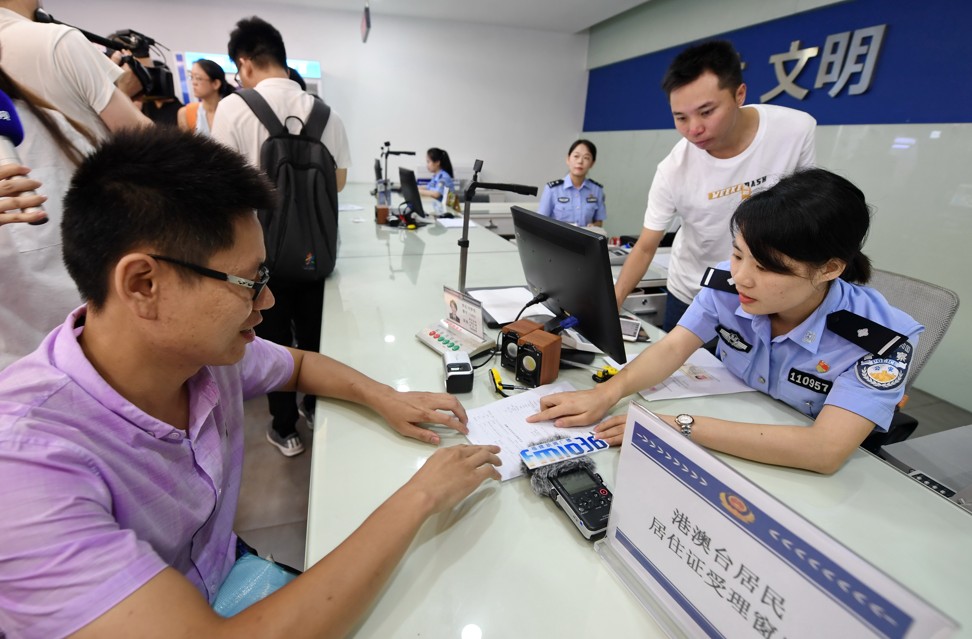Is Beijing’s offer of residence permits to Taiwanese a trick or treat?
More than 22,000 mainland-based Taiwanese have already obtained the cards but critics say they are being duped

A small smart card introduced by Beijing that offers Taiwanese a range of incentives to live and work on the Chinese mainland has generated an outsize controversy over whether its real aim is to win over residents of the self-ruled island and pave the way for future unification.
Since the start of the month, people from Taiwan, as well as those from Hong Kong and Macau, who have worked or studied on the mainland for more than six months have been eligible to apply for the new residence permits.
In the first 10 days of September, more than 22,000 mainland-based Taiwanese obtained the cards, according to the Taiwan Affairs Office in Beijing.
Taiwanese given ‘equal status’ on China’s mainland, but is Beijing just trying to buy their support?
Holders of the permits are entitled to benefits and privileges including employment, access to housing fund schemes, basic medical care, legal help and social insurance.
Applying for driving licences, catching domestic flights and trains, and taking professional qualification tests are also more convenient, according to regulations issued in August.
Beijing officials say the scheme is designed to make it easier for people from the three locations to work on the mainland, but authorities and critics across the Taiwan Strait argue that it is merely an attempt to lure Taiwanese people to relocate to the mainland and so diminish the self-ruled island’s identity.
Raymond Sung, a member of the supervisory board of Taiwan Democracy Watch, a pro-independence group, said the residence permit scheme was “China’s latest tactic to chip away at Taiwan’s sovereignty”.
“The [use of a personal] 18 digit code is the same as on the Chinese ID card. Its design is like the mainland Chinese ID card,” he said.
“By issuing such a card, China is trying to make the world accept the idea that the holders are Chinese people. This way, Beijing is quietly eroding the sovereignty of Taiwan.”
Chen Yun-wei, a Taiwanese computer software programmer based in Shanghai, said he was undecided on whether to apply for one of the new permits and needed more time to study the terms and conditions, including if it would mean he had to pay more taxes.
“I don’t know if there is any negative impact,” he said, adding that he was aware of the political implications for Taipei and Beijing.
“There is little we can do if we still want to work or live there.”
Other Taiwanese on the Chinese mainland said the benefits of the permit scheme outweighed the controversy.
James Liu, an accountant for a Taiwanese electrical appliance company who was sent to work in Beijing, said he applied for a permit as soon as the scheme was announced and was unconcerned about the political implications.
“The permit does provide us with a lot of conveniences while living on the mainland,” he said. “And if I stop working on the mainland, I can always give it up.”
Liu said that one of the benefits was being able to buy train tickets online and not have to collect them from a counter at the railway station, a service available only to holders of a mainland ID card or the new residence permit.
David Tsai, a Taiwanese hairstylist who has worked in Shanghai for four years, said he liked the new scheme as having a residence permit entitled him to social insurance and cheaper health care on the mainland.
As well as the residence permit scheme, Beijing in March introduced a raft of measures that it said were designed to give Taiwanese the same status as mainland residents. Among other things, they allow Taiwanese companies doing business on the mainland to get involved in the “Made in China 2025” industrial upgrade programme and claim tax incentives.
Tung Li-wen, a researcher at Taiwan Thinktank, said the residence permit scheme and the 31 new measures would create serious challenges for the self-ruled island.
“The permits and the 31 incentives are aimed at wooing not just Taiwanese but talented Taiwanese,” he said. “This will create a brain drain problem that the government here must look into and find ways to counter as the benefits offered are big enough to attract many talented people to move to the mainland.”
The Mainland Affairs Council in Taipei said earlier it was considering introducing a rule that would make it obligatory for people who acquired a mainland residence permit to inform the Taiwanese authorities of their status.
It also warned that the permits could “pose a risk to personal privacy, particularly in light of Beijing’s current efforts to install a vast network of video surveillance and facial recognition technologies as means of social control”.
Despite its concerns about the scheme, the island government said that people who were granted a mainland residence permit were not at risk of losing their Taiwanese citizenship. Such a move could only be made after considerable discussion, the Mainland Affairs Council said, as it was a matter of human rights.


